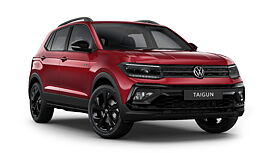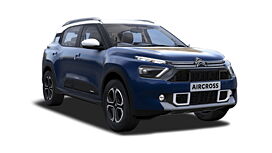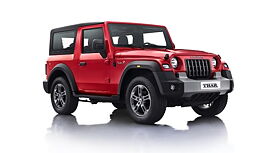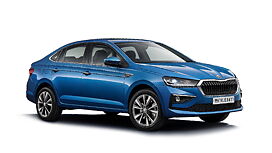మహీంద్రా xuv500 [2011-2015] వినియోగదారుల రివ్యూలు
మహీంద్రా xuv500 [2011-2015] కోసం వెతుకుతున్నారా? దేశవ్యాప్తంగా ఉన్న xuv500 [2011-2015] యజమానుల రివ్యూలు మరియు రేటింగ్స్ ఇక్కడ ఉన్నాయి.
వేరియంట్
w6
Rs. 12,58,524
Last recorded price
మీ వేరియంట్ని సెలెక్ట్ చేసుకోండి
All Versions
- All Versions
ఎక్స్క్లూజివ్
- Diesel
- Manual
- రేటింగ్స్ 4.0
w8
- Diesel
- Manual
- రేటింగ్స్ 3.2
w6
- Diesel
- Manual
- రేటింగ్స్ 3.2
w8 2013
- Diesel
- Manual
- రేటింగ్స్ 3.5
w8 ఎడబ్ల్యూడి
- Diesel
- Manual
- రేటింగ్స్ 3.4
w4
- Diesel
- Manual
- రేటింగ్స్ 4.0
స్పోర్ట్జ్ లిమిటెడ్
- Diesel
- Manual
- రేటింగ్స్ 4.0
ఎక్స్క్లూజివ్ (డ్రైవర్ పవర్ సీట్)
- Diesel
- Manual
- రేటింగ్స్ 3.5
w6 2013
- Diesel
- Manual
- రేటింగ్స్ 4.0
కేటగిరీలు (5 లో)
- 4.1ఎక్స్టీరియర్
- 3.7కంఫర్ట్
- 3.3పెర్ఫార్మెన్స్
- 3.4ఫ్యూయల్ ఎకానమీ
- 3.4వాల్యూ ఫర్ మనీ
అన్ని మహీంద్రా xuv500 [2011-2015] w6 రివ్యూలు
(21)
- అన్నీ
- 5
- 4
- 3
- 2
- 1
సార్ట్ ద్వారా :
- అన్నీ
- 5
- 4
- 3
- 2
- 1
సార్ట్ ద్వారా :
- 6 నెలల క్రితం | Sam Rangela"No. Don't buy an automatic! They are expensive, less efficient and they suck all the fun out of driving." These were my words of wisdom to my father several years ago. But recently I've had a slight change of heart. It all happened one evening when I was stupid enough to leave the house at rush hour in Mumbai. To make things worse, I was in this big SUV which just wouldn't fit through all the gaps that the other cars managed to squeeze through. The only solace I found that night was in the automatic gearbox of the XUV500. So while it certainly makes a strong case for automatics in India, does it make one strong enough for that heavy price tag? The XUV500 certainly does have presence, and those muscular bulges that run all around with that large front grille give it a lot of character. On the inside, the XUV has always been a car that seemed to look and feel like it belonged in the premium segment Â… for a couple of months at least. The materials in the XUV500 are good, but the way they've all been put together isn't. The test vehicle we used had run just over 500km and already had an annoying rattle coming from the passenger seat. Another odd detail that we noticed was that the driver's seat wasn't perfectly straight, but angled a tiny bit to the left. A crooked seat I could handle, but that annoying rattle did hit a nerve. Now that the whining is done, let's get on to the heart of the matter – the engine and transmission. The 2.2-litre turbo diesel engine in the XUV500 is quite refined, especially when compared to most other diesel SUVs below Rs 20 lakh. The power and torque delivery is very linear with the 330Nm of torque available right from 1,600rpm all the way up to 2,800rpm. The XUV500 is a pleasure to drive in and out of town with its responsive 2.2-litre engine mated to that 6-speed Aisin automatic gearbox. Although the gear selector is sticky, the transmission itself is pretty smooth. It is quite responsive to throttle input and while it isn't snappy, it isn't sluggish either. It's the same case when you switch to manual mode – flick the button on the gear lever, and there's a gear change almost immediately. However, the amount of electronic interference in manual mode is quite annoying. You can hold your gears only for a couple of seconds before the electronics kick in and it automatically shifts up. The XUV500 gets to a 100kmph within 11.9 seconds (almost a second quicker than the manual), and continues to pick up speed pretty quickly until it reaches 150kmph, where it beeps. From that point on, it's a slow climb up. It is comfortable at around 130kmph, but even with a 6-speed transmission, driving at that speed will take a big chunk off your fuel efficiency. With a light foot, we managed to get an overall average of 10.35kmpl. Another thing that impressed me about the XUV500 is the way it corners. There is some amount of understeer, but the amount of body roll is minimal which does inspire some confidence. The downside to that however, is that the suspension is a little too stiff for comfort, especially for rear passengers. But with five people on board weighing it down, it should be fine. However, where the suspension inspires confidence, the tyres bring in doubt. The Bridgestone dealer H/T tyres have been around for a while now and although they are proven tyres, the XUV500's chassis dynamics would have certainly improved a bit more with a more modern set of tyres that grip better. And now we're back at whether the automatic XUV500 AWD makes for a sensible purchase at Rs 17.36 lakh (ex-Delhi). Choosing between the automatic and the manual XUV500 is matter of preference. The automatic has a significantly better gearbox, is easier to drive and costs around a lakh more than the manual. If you're keener on fuel efficiency though, the manual makes more sense with an overall figure of 13.1kmpl. However, unless you're particular on having seven seats, the automatic Hyundai Creta is a better deal. But with the XUV500, it is clear that Mahindra is on the right road towards making a great car.రేటింగ్ పారామీటర్లు(5 లో)5
ఎక్స్టీరియర్/స్టైల్స్
5కంఫర్ట్ & స్పేస్
5పెర్ఫార్మెన్స్ (ఇంజిన్/గేర్/ఓవరాల్)
5ఫ్యూయల్ ఎకానమీ
5మనీ వాల్యూ/ఫీచర్లు
రివ్యూయర్ గురించికొనుగోలు కొత్తవరకు నడిచిందిదానిని డ్రైవ్ చేయలేదుఇంకా చదవండిఈ రివ్యూ మీకు సహాయకరంగా ఉందా?00
ఈ రివ్యూలను కూడా మీరు పరిగణించవచ్చు
- హోమ్
- మహీంద్రా కార్లు
- xuv500 [2011-2015]
- యూజర్ రివ్యూస్
![xuv500 [2011-2015] ఫోటో xuv500 [2011-2015] ఫోటో](https://imgd.aeplcdn.com/227x128//cw/cars/discontinued/mahindra/xuv500-2011-2015.jpg)








